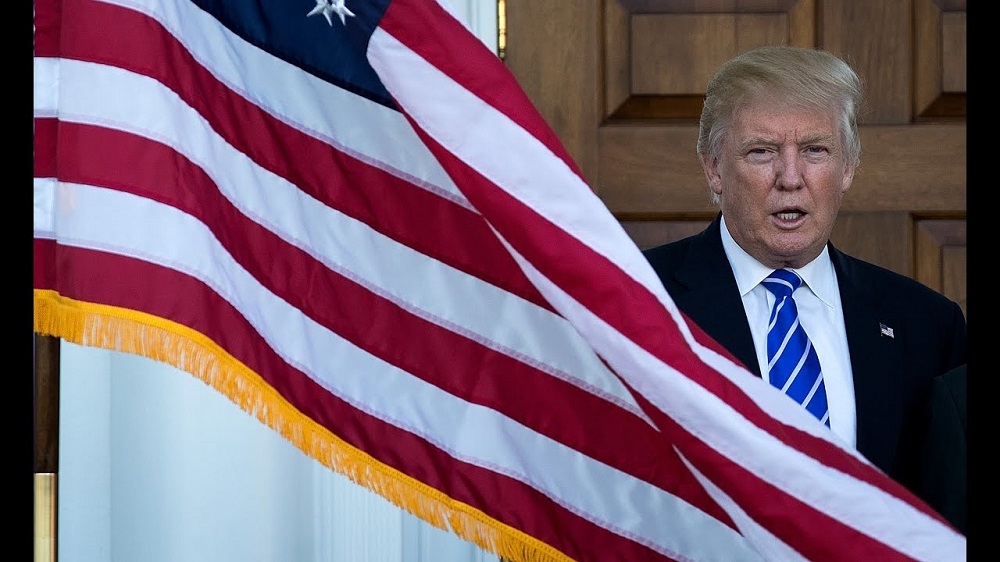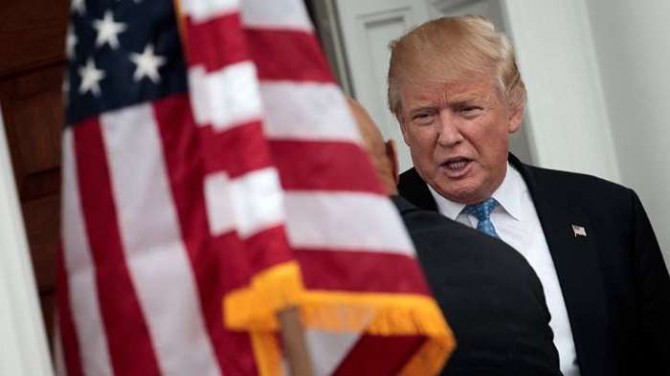
President-elect Donald Trump has been unleashed on Twitter, and while there are much more bigger and important pressing issues for him to attend to, he has decided to attack the vote recount brought forward by Jill Stein.
Sadly, this only shows more of what we can expect once he is in office as now is the time for him to be putting a strong and authoritative foot forward rather than sounding like another internet troll. Trump has also redirected his venom for The New York Times (and you would think after his haphazard interview with them last week, he would have tried to claim being taken out of context) onto CNN.
Donald Trump’s tweets can’t erase the reality that he lost the popular vote in this month’s election, according to vote-counting operations.
The president-elect tweeted Saturday that he’d have won the popular vote “if you deduct the millions of people who voted illegally.” He also alleged “serious voter fraud” in California, New Hampshire and Virginia and complained that the media aren’t covering it.
In addition to winning the Electoral College in a landslide, I won the popular vote if you deduct the millions of people who voted illegally
— Donald J. Trump (@realDonaldTrump) November 27, 2016
"@sdcritic: @HighonHillcrest @jeffzeleny @CNN There is NO QUESTION THAT #voterfraud did take place, and in favor of #CorruptHillary !"
— Donald J. Trump (@realDonaldTrump) November 29, 2016
.@CNN is so embarrassed by their total (100%) support of Hillary Clinton, and yet her loss in a landslide, that they don't know what to do.
— Donald J. Trump (@realDonaldTrump) November 29, 2016
Not only did he present no evidence to back up those claims – there apparently isn’t any. Asked to provide supporting evidence on Monday, Trump’s transition team pointed only to past charges of irregularities in voter registration. There has been no evidence of widespread tampering or hacking that would change the results of the presidential contest, and for good reason, experts said.
For one, it would be highly impractical. The nation’s election system is decentralized, a patchwork of state laws whose differences would be nearly impossible to target on a large scale, said Wendy Weiser, director of the Democracy Program at the nonpartisan Brennan Center for Justice.
“You would need to have hundreds and hundreds of thousands of people conspiring with insiders and with one another,” Weiser said. “To keep a conspiracy of that magnitude secret is just unthinkable.”
“The process is not rigged anywhere in America,” said R. Doug Lewis, who headed the nonprofit Election Center for more than two decades. Interest groups, bloggers and others across the political spectrum keep anecdotal lists of instances of election fraud, he said, but “when each side is forced to come up with factual examples where that has happened, where they have to name names … almost always the allegations go away.”
On Twitter, Trump has returned to two well-worn techniques: denying he’s lost anything and playing on public distrust.
The AP’s vote-counting operations in California, Virginia and New Hampshire used locally hired workers to gather vote totals from local jurisdictions. In some states, the news agency also collected votes from secretaries of state or state election boards.
They called Democrat Hillary Clinton the winner in all three states, said its vote count operation found no significant differences between the county-by-county vote totals and those released statewide on election night in California and Virginia. In New Hampshire, the vote totals were reported directly to the news agency by town clerks and were verified in most towns before the count was completed. The totals also were certified by New Hampshire’s secretary of state.
Trump’s charge that he actually won the popular vote if the “millions of people who voted illegally” had not been counted mimics one posted on Infowars.com, a conservative website that traffics in conspiracy theories.
Trump’s win in Michigan, certified by state election officials on Monday, gave the Republican an additional 16 electoral votes, bringing his total to 306, to Clinton’s 232.
There is recount drama resulting from the 2016 election, but it’s not being initiated by Trump loyalists.
Green Party candidate Jill Stein had raised $6.3 million by Monday for the recount she’s seeking in Wisconsin, Michigan and Pennsylvania – places that Clinton, a Democrat, had thought were safely in her column. Instead, Trump won all three and with them the electoral votes needed to win the White House. Clinton’s campaign is supporting the Wisconsin recount.
Stein, too, hasn’t provided evidence of voting irregularities. She says “cyber hacking” affected the vote outcomes in those states. The Wisconsin Elections Commission voted Monday to proceed with a recount and will bill Stein and other interested campaigns for the cost, estimated to be around $1 million.
In Michigan, Stein’s lawyer notified election officials Monday that she will file a recount petition on Wednesday. Trump would have seven days to file objections to her request.
Recounts in major statewide elections are extremely rare – and they seldom succeed in changing the result.
Green Party presidential candidate Jill Stein is seeking recounts in Michigan, Wisconsin and Pennsylvania, states that went to President-elect Donald Trump.
There have been only 27 recounts out of 4,687 statewide elections across the country from 2000 through 2015, according to FairVote, a nonpartisan group that analyzes elections. Those thousands of statewide races range from U.S. president to mine inspector in Arizona.
The only recount in a presidential race was in Florida in 2000, according to FairVote, but it was halted by the U.S. Supreme Court with George W. Bush winning by 537 votes.
Recounts changed the results in three statewide races:
– In the 2008 race for U.S. Senate in Minnesota, Democrat Al Franken defeated Republican incumbent Norm Coleman by 312 votes. Coleman was ahead by 215 votes before the recount, which was automatic because of the tight margin.
– Tom Salmon won the race for Vermont auditor by 102 votes in 2006 after he requested a recount.
– The 2004 race for Washington governor was automatically recounted after Republican Dino Rossi was ahead by 261 votes. After a third count by hand, Democrat Christine Gregoire was declared the winner by 133 votes.


